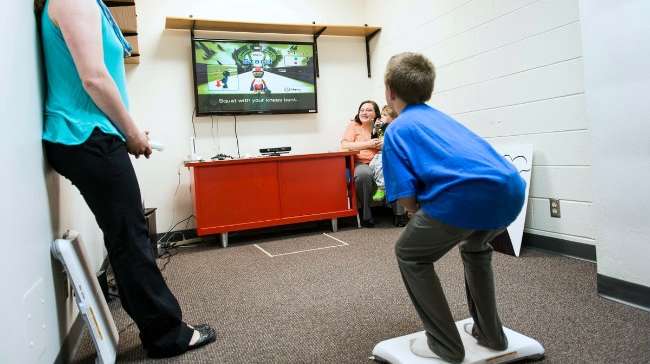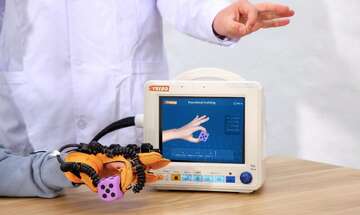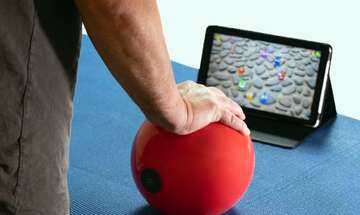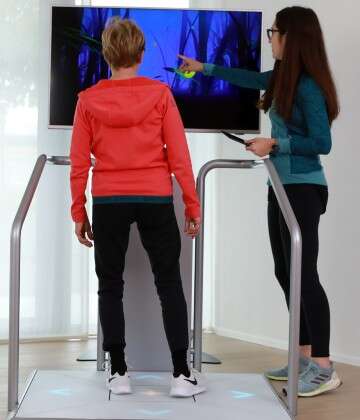Balance Training Shows Promise for Autism
 images: UNIVERSITY OF WINSCONSIN - MADISON; PHOTO: JEFF MILLER
images: UNIVERSITY OF WINSCONSIN - MADISON; PHOTO: JEFF MILLER A new University of Wisconsin study of children with autism spectrum disorder (ASD) is trying to determine if improving the kids' motor skills through balance training may affect their autism symptoms.
Nintendo's Wii Balance Board was used in a new study of children with autism spectrum disorder (ASD ) at the Waisman Center at the University of Wisconsin – Madison, to learn if improving the kids' motor skills may have a positive impact on their other autism symptoms. The study comes on the heels of a research paper, "Brainstem White Matter Predicts Individual Differences in Manual Motor Difficulties and Symptom Severity in Autism," published in 2015, which found that motor impairments associated with autism were affected by changes in the same part of the brainstem that predicted autism symptoms severity, and that poorer motor skills, such as weaker grip strength, were related to more severe autism symptoms. The research dispelled the notion that motor impairments in people with autism led to the social impairments, or the other way around.

Brittany G. Travers, PhD, professor in the occupational therapy program in the Department of Kinesiology, who led the research, also conducted the more recent study to determine if helping children with ASD improve their motor skills may affect their other autism symptoms. The study involved a special game that challenged kids to hold various poses similar to those seen in yoga or martial arts while standing on the Wii Balance Board. The system tracked the kids' movements to ensure they were holding the poses correctly and, in between the poses, the kids played regular Wii games like Ski Jump or Penguin Slide. The Wii games were used both to make things more fun for the kids and to improve their stability and balance which, in turn, helped them improve their ability to hold the poses longer.

The results of the study, which will show if there were any changes in children's autism symptoms, such as social communication skills and repetitive behaviours, will be published later this year. Brain scans taken before and after the study may also reveal any structural changes taking place in the brain as a result of the balance training.

Even if the results show little to no change in the brain, Travers is optimistic about the effect that balance training has on improving the children's motor skills. Motor skills significantly affect independent living skills, like dressing, cooking and driving, which means that balance training may make a difference in the kids' daily lives regardless of its effect on their other autism symptoms.

 SEND INQUIRY
SEND INQUIRY









